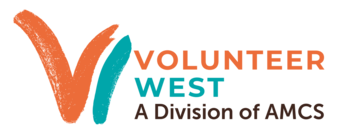Volunteer management in a gallery? It’s an art form
Building photo via Incinerator Gallery
The importance of museums, galleries, and other cultural spaces cannot be overstated. It’s a point Christine Healey knows well in her role as Curator of Education and Community Learning at Incinerator Gallery in Aberfeldie, along with a previous role at Heide Museum of Modern Art.
Sharing expert knowledge of how volunteering helps shape education in the gallery environment, Christine charts her volunteer journey with us below.
What was your first experience with volunteering?
The first time I volunteered was at the local kindergarten when my children were little. I was on the parent committee, helped with fundraising and did ‘parent duty’ helping with activities and cutting up fruit. By volunteering at kinder, then at school I also learned about children’s development which was really helpful when I did my teacher training. I enjoyed volunteering then and still do. Currently I have a role volunteering with the ENVi, (Education Network Victoria) for museum educators. I think volunteering is an important act of generosity for the benefit of communities and services we care about.
How long have you been a volunteer manager? What skills did you need to learn?
The first time I managed volunteers was when I started working at Heide Museum of Modern Art in 2009 as Education Manager. I developed a small team of 20 dedicated education volunteers who were really passionate about the value of galleries as a transformative experience for school students. It was really exciting to support volunteers and their values in wanting to share art, design, museum literacies and develop students critical and creative thinking abilities.
“The program was really thoughtfully planned and the Accidental Counsellor session was amazing.”
In 2015 I went to the Shrine of Remembrance as Education and Volunteer Manager with a broader focus on overall volunteer management. I worked with a small team of paid staff who supported over 100 volunteers. I learned a lot about people management in that role and introduced online volunteer management software. Initially there was a lot of resistance to this, but with patience and kindness, everyone transitioned to a new way of working well within the anticipated timeframe. It was wonderful to see people who had never used technology before grow in confidence and skill with going online.
My current role as Curator Education and Community Learning since 2017 has me developing a new volunteer team at Incinerator Gallery (part of Moonee Valley City Council). Skills developed in my other roles are useful here and give me confidence with involving volunteers. This has all helped me to adaptively manage during the pandemic, as volunteer engagement has been stop-start.
In what capacity have you engaged with Volunteer West?
As a long-time Westy I have had awareness of Volunteer West for many years. Now that I work in the west, I’ve been able to drop into occasional meetings. Zoom and working from home has made this much easier to do. I participated in the VolBoost Training Program early in 2021 and really enjoyed the opportunity to review best practice and meet other local volunteer supervisors. The program was really thoughtfully planned and the Accidental Counsellor session was amazing.
What do you find the most important part of empowering volunteers?
I see my role as being one of mentorship. People come to volunteer at the Gallery because they’re passionate about art, education and community. For some they want to share existing skills and other want to learn new ones and build their networks for future employment. I try to find out what people want and support their development in alignment with that. With volunteer engagement being competitive these days, it is important to make sure that volunteers gain the benefits they’re seeking while providing service and positive experiences for the community. I also work hard to get volunteers connected and supporting each other. A sense of community and belonging helps to keep volunteers keen and accountable. Achieving this has been really difficult during the pandemic.
What volunteer manager skills do you use with your organisation?
Planning, administrative and organisational skills, plus understanding about risk management and compliance are all transferable skills. But in addition to these, I find that working with volunteers helps to build qualities including:
Interpersonal skills and characteristics including empathy, good humour, and clear communication
Passion about our organisation’s mission and purpose
Good marketing and recruitment skills
What is your number one tip for potential volunteer managers?
Listen carefully to what your volunteers want or need from their volunteer role. Be really clear about your expectations and where you can and cannot meet theirs. Also, a good mentor is worth their weight in gold. It is important in this work to have someone you can seek advice and support you when tough decisions are required.
Learn more about Incinerator Gallery here.
Visit here for more information about Volunteer West’s resources and support for organisations

